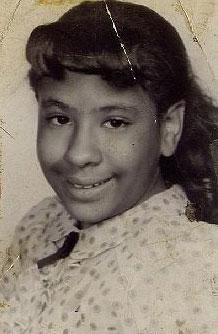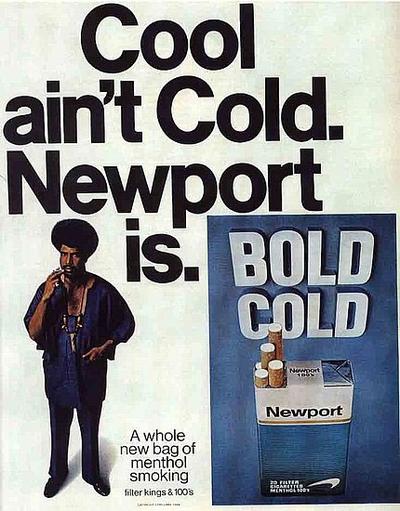Advertisement
Lawsuit Says Tobacco Co. Targeted Roxbury Youth
She has been dead for eight years now, but Marie Evans spoke to jurors in Suffolk Superior Court on Friday.
It was a video deposition taken for the groundbreaking lawsuit that her family has brought against the makers of Newport cigarettes. In the video, Evans blames the company for getting her and other black children in her Roxbury neighborhood addicted to cigarettes.

It was 2002 and she was only 54. Within four weeks, Evans would be dead. The lung cancer had spread to her brain, liver, glands and esophagus. She took off her oxygen mask to spend several hours in front of a camera, talking about how she started smoking and how she never managed to quit. At one point, she has to stop for several seconds while she violently coughs.
She remembered being 9 years old when people came to Roxbury to hand out cigarettes. "They had ladies out there giving them away who were attractive, and all the things that I wanted to be," Evans said.
It began in the late 1950s and '60s, she said. On the school playground, next to the swings and jungle gyms, people would come to hand out free cigarettes to black children. At first, she would trade them to her sisters for candy. By age 13 — envying the woman handing them out — Evans had become a regular smoker.
"She was a very attractive woman," Evans said. "Model look, look that every young girl wanted to have." Evans said the woman was dressed "voluptuously ... very sexy looking."
A sexy look, a sexy package — the cigarettes were free and the image of glamorous black smokers offered hope in the dingy projects in Roxbury, Evans said.
In her deposition, Evans recalled standing in line to be handed a free pack. The prosecuting attorney, Michael Weisman, asked Evans if the person handing out the cigarettes had ever asked how old she was. "No," she said.
Evans became a serious smoker, averaging one and a half to two packs a day. And they were always Newports. Menthols. Shorts, longs, slims — but usually 100s. Her son, Willie, now a trial lawyer whose suit alleges that the cigarette maker Lorillard engaged in illegal marketing strategy, testified that his mother was addicted.

"She would try just quitting, she would try to do it cold turkey, she would try to take classes, she'd go to counseling, she would try pills, she would try patches, she would try gum," Willie Evans said. "It was an ongoing battle for her. But she always tried."
In that same video deposition before her death in June 2002, a lawyer for Lorillard, the defendants in this case, points out to Evans that she is a layperson, not a medical expert.
"What you meant to say by addiction is that you found it hard to stop smoking cigarettes," the lawyer said.
Evans agreed under the defense's questioning that no doctor had ever told her she was addicted, and that there were times in her life — at work or in the hospital, for instance — when she was unable to smoke but able to function.
Asked by the lawyer for Lorillard if she remembered when the U.S. surgeon general first came out and said smoking could cause lung cancer, Evans responded, "Yes, I do remember that."
Evans had a heart attack in 1984 and she acknowledged under defense questioning that there was a history of heart disease and cancer in her family. She acknowledged that doctors had urged her to stop. And her son had, too.
Through its current set of lawyers, the cigarette maker says there's no evidence it gave Newports to Evans and other black children at the Orchard Park projects. But at the time of the deposition, the company's former lawyer phrased questions in a different manner.
"So what you're really telling the jury," he said to Evans, "is that the Newport giveaway program is really one of a number of different sources from which you were able to get cigarettes as a teenager. Correct?"
"Yes," Evans said.
The defense says she should have known better and heeded the warnings and advice.
"I just can't explain it," Evans said, years after the free Newport giveaways and a few weeks before she died. "I just couldn't stop."
This program aired on November 19, 2010. The audio for this program is not available.
